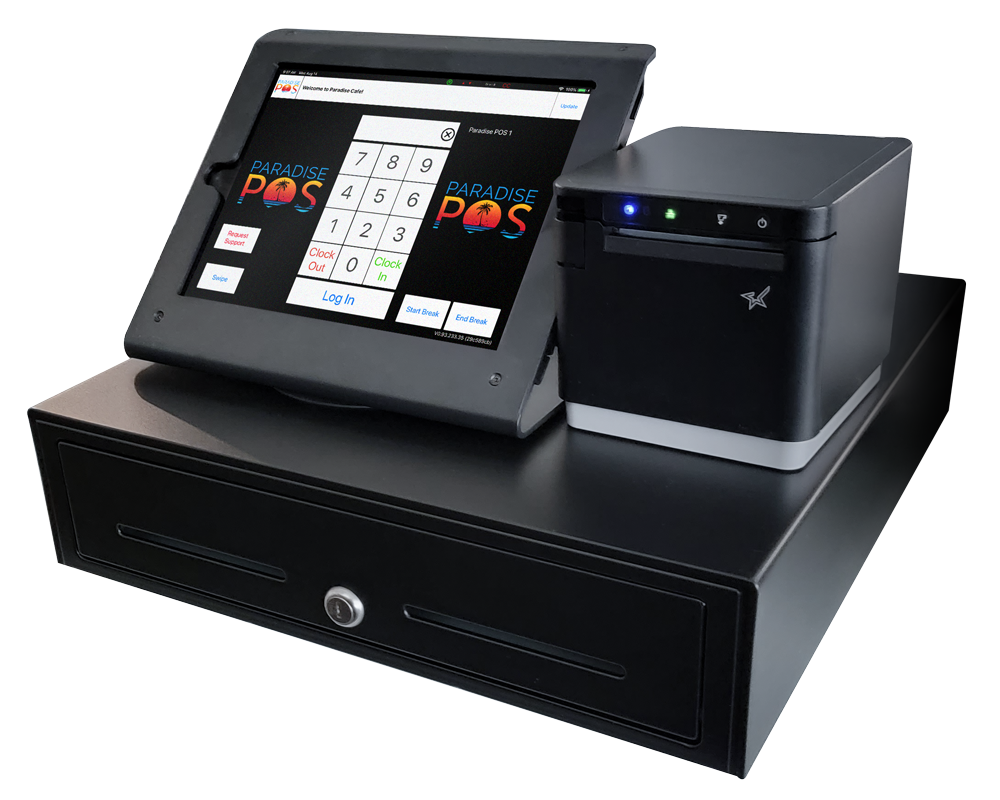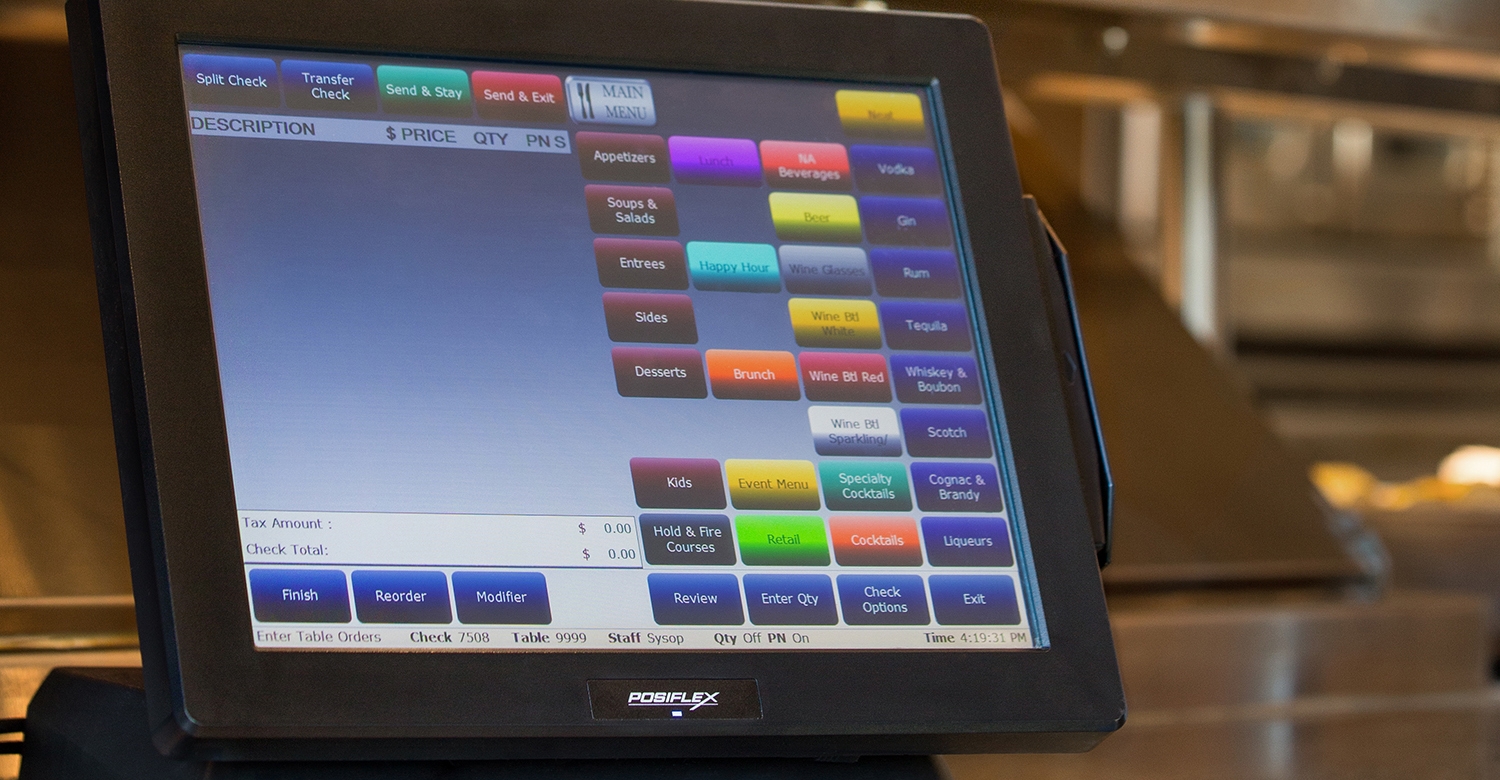Top Guidelines Of Pos
Top Guidelines Of Pos
Blog Article
What Does Point Of Sale Software Do?

Point of Sale Systems: Retail Point-Of-Sale Solutions Streamline Transactions
Rumored Buzz on Point Of Sale Software

Hardware Elements of a Point of Sale System What makes a POS system tick? It's not just software application; the hardware plays a starring function. Believe of it as the body to the software's brain. Without the ideal hardware, even the most sophisticated POS software application is just a quite face. Vital POS Hardware So, what are the must-haves? Let's break it down. The main processing system, frequently a computer or tablet, is the heart of the operation. The screen or touchscreen display allows staff to interact with the system. A barcode scanner speeds up the checkout procedure. Keep in mind the days of manually getting in each code? The dependable receipt printer supplies clients with a record of their purchase. A money drawer keeps your cash safe and organized. A card reader permits consumers to pay with credit or debit cards. Diving Deeper: Beyond the Fundamentals But wait, there's more! Depending on your company, you may require specialized hardware. A restaurant might integrate kitchen printers to relay orders, while a retail store might utilize label printers for item tagging. Ever question how your regional bakeshop immediately prints those delicious-looking labels? Selecting the Right Hardware: A Balancing Act Picking the right hardware isn't almost buying the most costly more info devices. It has to do with discovering the sweet area in between functionality, durability, and budget. A small service just starting out might go with a more basic setup, while a high-volume seller will require robust, high-performance makers. Is it better to buy new or used? Consider your alternatives carefully. A brand-new system provides the most recent innovation and guarantee security, however a reconditioned system can save you money. The Future of POS Hardware What does the future hold? Anticipate to see a lot more combination with mobile devices, biometric scanners for employee authentication, and advanced analytics control panels showed on larger, clearer screens. Think of a world where stock is immediately upgraded in real-time as items are scanned-- a world where you can track your best-selling product from anywhere in the world. The possibilities are endless, and the hardware is continuously progressing to fulfill the demands of today's organizations. Are you ready to update your point of sale system?
Software Characteristics and Capabilities: The Heart of Your POS System
Ever watch a seasoned barista glide through a busy morning rush? Their trick isn't simply caffeine; it's a seamless dance with their POS system. The software is the conductor of your service symphony, managing everything from sales to inventory. What notes should you be listening for? What abilities really matter in today's market?
Stock Management: Beyond Counting Beans
Forget spreadsheets that haunt your dreams. Modern POS systems offer real-time inventory tracking, signaling you when your stock of artisanal coffee beans dips precariously low. Think about it as a digital guardian angel, preventing those uncomfortable "Sorry, we're out!" moments to consumers. What if you could likewise anticipate demand based upon historic data? Numerous systems now provide forecasting tools, a powerful weapon against overstocking and lost sales. This helps prevent the dilemma of lacking popular products or accumulating excess stock of slow-moving products, both of which can constrain money circulation and space.
Sales Reporting and Analytics: Decoding the Data
Sales data is the new gold, and your POS system is the miner. Forget feeling in one's bones just how much you sold today. Dive deep into the data to reveal trends, identify your very popular products, and comprehend client habits. Which menu item sets perfectly with the day-to-day special? Which promo resonated most with your customers? These insights are not just interesting; they're actionable intelligence. Without reputable sales reporting, navigating the complexities of company decision-making becomes like sailing without a compass, increasing the opportunity of mistakes and missed out on opportunities.
Client Relationship Management (CRM): Structure Bridges, Not Walls
Remembering a routine client's name and favorite order is charming, but scaling that individual touch is challenging. POS systems with CRM abilities allow you to track client purchase history, preferences, and even birthdays. Think of immediately using a discount rate on their birthday-- a small gesture that fosters loyalty and motivates repeat organization. There is the prospective snag of bad data quality, which can lead to unreliable customer profiles and ineffective marketing efforts.
Payment Processing: Improving the Deal
The checkout experience can make or break a sale. Smooth combination with different payment techniques-- charge card, mobile wallets, even copyright-- is non-negotiable. Can your system handle split payments? Does it provide safe tokenization to secure consumer information? A clunky payment procedure is like striking a sour note in your company symphony, potentially interfering with the whole efficiency. Guaranteeing compatibility with progressing payment technologies and adherence to security requirements are paramount for keeping consumer trust and operational performance.
Worker Management: Keeping the Team in Sync
From clocking in and out to managing authorizations and tracking efficiency, worker management features improve operations and improve responsibility. Is scheduling a problem? Lots of POS systems provide integrated scheduling tools, optimizing staffing levels based on anticipated demand. A common challenge that is frequently ignored is the difficulty of integrating staff member management functionalities with payroll systems, which can cause errors and inadequacies in wage calculations.
Advanced Features: Leveling Up Your Operations
- Table Management: Suitable for restaurants, this function allows you to envision your dining room, track table status, and manage bookings.
- Loyalty Programs: Reward your best customers and motivate repeat business with incorporated commitment programs.
- Online Buying Integration: Seamlessly incorporate your POS system with online buying platforms to broaden your reach.
Picking the best POS system has to do with more than simply performance; it has to do with discovering a partner that can grow with your business. Consider your present requirements, expect future growth, and do not be scared to ask the hard questions. The best software application can change your organization from a disorderly cacophony into an unified work of art.
Industry-Specific POS System Applications
Think about the local pastry shop, busy with early morning customers yearning fresh croissants. A generic POS system might handle transactions, but can it manage complex dishes, track active ingredient stock, or automatically adjust production schedules based upon sales data? Most likely not. That is where the beauty of industry-specific POS systems shines.
Dining establishments and Hospitality
For dynamic restaurants, speed and accuracy are vital. How numerous times have you seen servers managing orders, modifications, and splitting expenses, all while attempting to provide excellent service? A restaurant POS system streamlines these processes, enabling table management, cooking area order tickets, and even online buying combination. These systems often consist of features like ingredient-level inventory tracking, crucial for managing food costs and reducing waste. Ever question why your favorite dish is in some cases not available? It may stem from an absence of correct stock management.
- Table Management
- Kitchen Order Tickets
- Online Buying Integration
- Ingredient-Level Stock Tracking
Retail Solutions
Retail, with its diverse stock and client interactions, requires a different set of tools. Envision a store clothes store having a hard time to keep an eye on sizes, colors, and seasonal collections using a standard checkout system. An industry-specific retail POS system provides features like barcode scanning, customer loyalty programs, and comprehensive sales reporting. These systems can even integrate with e-commerce platforms, offering a seamless omnichannel experience for clients. Did you understand some retail POS systems can forecast future sales patterns based upon historical data? Now that is powerful!
The Dangers of a Mismatch
Picking the incorrect POS system can create significant operational obstacles. A clothes shop utilizing a dining establishment POS, for example, would discover it unsuitable for managing stock with sizes and colors. The lack of proper reporting and analytics might result in mistaken getting choices and lost income. The result could be similar to trying to fit a square peg in a round hole.
Key Considerations
Choosing an industry-specific POS system needs mindful evaluation. Believe about your company's distinct needs and operational workflows. Does the system integrate with existing software application? Does it provide the necessary reporting capabilities? Is it scalable to accommodate future development? A well-chosen POS system is not simply a deal tool; it's a strategic property that can drive efficiency, improve client fulfillment, and ultimately, boost your bottom line. Keep in mind, it is a financial investment in your company's future, not just a cost.
Security Considerations for Point of Sale Systems
Ever heard the tale of the mom-and-pop store that lost everything due to the fact that of a single, overlooked security flaw in their POS system!.?. !? It's a cautionary tale, and it highlights an important aspect frequently overshadowed by the attraction of elegant functions and structured operations. The truth is, a POS system is just as excellent as its security. What great is a system that crunches numbers in a flash if it permits lawbreakers to swipe customer's data just as quickly?
The Vulnerability Minefield
The digital landscape is a battleground. Every POS system, despite size or sophistication, is a possible target. Are you genuinely prepared for the threats prowling around the corner? The real pinch comes when you find that your outdated software application has a gaping hole that hackers can make use of, turning your service into an unwitting accomplice in identity theft. The difficulty is that hackers are crafty and are constantly altering their strategies.
Typical Security Gaps and Expert Tips
- Weak Passwords: "Password123" isn't cutting it. Use strong, distinct passwords for all POS system accounts and alter them regularly. Two-factor authentication is a must.
- Unsecured Networks: Your Wi-Fi is like leaving the front door open. Secure your network with strong file encryption (WPA3 if possible) and think about a different network for your POS system.
- Outdated Software: Software application suppliers patch security holes all the time. Failing to update resembles welcoming difficulty. Establish automated updates or schedule routine upkeep.
- Worker Training: Your staff is your very first line of defense. Train them to acknowledge phishing efforts, secure passwords, and report suspicious activity.
Information File Encryption: Your Shield Versus the Dark Arts
Think of data file encryption as a secret code. It scrambles sensitive details, like charge card numbers, making it unreadable to unapproved users. Without encryption, your customers' financial details are like sitting ducks, ripe for the picking by cybercriminals. It's not almost securing your customers; it's about securing your credibility and preventing substantial fines.
PCI Compliance: The Rulebook You Can't Ignore
If you accept charge card, you're bound by the Payment Card Market Data Security Standard (PCI DSS) It's a set of security requirements created to secure cardholder data. Stopping working to comply can lead to fines, charges, and even the loss of your capability to process charge card payments. It's a headache, yes, but it's a necessary one. Think about PCI compliance as the cost of doing organization in the digital age.
Consider this: every deal processed through your point of sale is a prospective entry point for harmful stars. By executing robust security steps, you're not simply securing your business; you're protecting your clients' trust and making sure the long-lasting viability of your operations. The security of your POS system isn't simply a technical problem; it's a company crucial. It needs constant vigilance, proactive steps, and a commitment to remaining ahead of the curve.